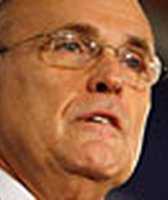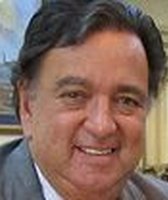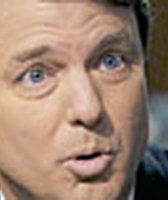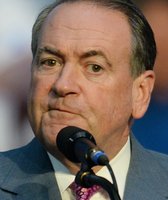Stand up for the facts!
Our only agenda is to publish the truth so you can be an informed participant in democracy.
We need your help.
I would like to contribute
SUMMARY: The campaign of Sen. John Edwards boasts that he has never taken money from Washington lobbyists, but lobbyists in other venues are welcome to contribute.
The word "never" begs reporters to find an exception to prove the statement false.
Well?
On the face of it, there are exceptions to this ironclad claim. The Center for Responsive Politics, a non-partisan research group that tracks money in politics, found that Edwards accepted $14,900 from employees at lobbying firms through June. In 2004, records show that Edwards received $30,630 from lobbying employees, and in 2002, he took in $4,700 from that group.
While those numbers pale in comparison to other top-tier candidates -- Hillary Clinton received $427,950 from lobbyists, McCain $287,150 -- they still contradict Trippi's comment.
Or seem, too. The spokesman for the center, Massie Ritsch, said those figures include lobbyist donors to Edwards that actually are registered to lobby at the state or local level.
Colleen Murray, an Edwards campaign spokeswoman, said the claim is 100 percent true because most of the names flagged by the center were state lobbyists, not federal.
That distinction is an important one to Edwards. When his campaign says Edwards accepts no lobbyist money, they mean only federal lobbyists, not lobbyists registered elsewhere.
"The people who are federal lobbyists are paid to influence federal lawmakers," said Colleen Murray, an Edwards spokeswoman. "You get into the area where somebody's offering their support to get something down the road."
State lobbyists don't count, Murray said, "because we're not running for state government."
If this sounds familiar, it is. Sen. Barack Obama, a fellow Democrat, has made similar claims about his aversion to federal lobbyist money, while defending his right to collect cash from other influence-seekers.
The Federal Election Commission and Ritsch both vouch for the claim this year that Edwards doesn't take money from Political Action Committees. But according to the Center for Responsive Politics, Edwards did get $2,000 in PAC money in 2004. Of course, out of a total of $33-million he raised that year, what's $2,000?
"In the grand scheme of things, I wouldn't even mention it," said Ritsch.
To weed out Washington lobbyists, the campaign requires donors to check a box declaring that they're not federal lobbyists. In addition, campaign staff cross-checks donor names with the federal lobbying registry. If they see a match, they'll return the donation.
It's not perfect. For instance, the campaign returned $3,700 in July after the Associated Press found that lobbyists had contributed. The AP later reported that of 25,000 individual donations recorded in finance reports, 8,400 didn't name their occupation. The Charlotte Observer found four contributors in September that were Washington lobbyists who hadn't received refunds. Subsequently, the Edwards campaign refunded those, too.
The AP reported in 2004 that Edwards accepted thousands from individuals or groups registered to lobby in Washington, or their spouses or children.
Murray said the campaign is taking precautions this year, but it can be difficult —and in some cases unfair — to prevent relatives of lobbyists from giving.
"That's a real gray area," she said. "Who's to say that a lobbyist's wife who is a school teacher and wants to give shouldn't be allowed to do so?"
Some power players are not registered lobbyists, but advise their clients on how to talk to federal officials about policy issues. Obama, for instance, has taken their contributions.
For example, Tom Daschle, the former Senate Majority Leader, who endorsed Obama and contributed to his campaign, is a consultant -- not a registered lobbyist -- working with Alston & Bird, a business firm that earned nearly $7.1 million from lobbying in 2006. Obama has received tens of thousands of dollars from other partners in the same firm.
Another exception for both candidates: While lobbyists are shunned, special interests aren't.
Edwards leads all candidates through June in contributions from lawyers, receiving $6.6-million. Aren't lawyers, including the Association of Trial Lawyers of America, lobbyists?
"Sure they're lobbyists," Ritsch said. "Just because you're not a federally registered lobbyist doesn't mean you don't want something in return. If candidates for office returned every dollar from people who wanted something from them, they wouldn't have any money left."
But the Edwards campaign is sticking to its claim.
As Trippi told Chris Matthews: "Trial lawyers, teachers, they may hire lobbyists. But they don't lobby. The lobbyists are the people who have to register as lobbyists."
Our Sources
Times interview with Massie Ritsch, Center for Responsive Politics
Times interview with Colleen Murray, spokeswoman for the Edwards campaign.
The New York Times, Jan. 31, 2004 The 2004 Campaign: Fundraising; Democrats Assail, and Tap, 'Special Interests'
Associated Press, March 2, 2004 Edwards has taken donations from registered lobbyists, study indicates
Associated Press, July 21, 2007 Edwards Returns Donations From Lobbyists
Associated Press, Aug. 1, 2007 Former trial lawyer Edwards still relying heavily on attorneys to fund campaign
Charlotte Observer (North Carolina), Sept. 24, 2007 Edwards, Obama Say No to Lobbyists' Money
Center for Responsive Politics Edwards campaign money breakdown
Federal Election Commission FEC filings





































